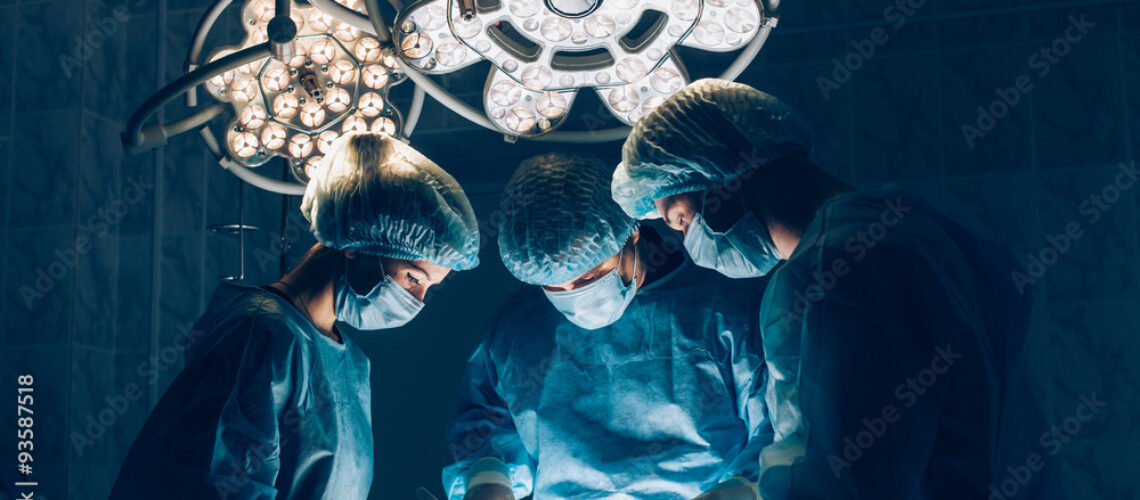Dr. Robert MacArthur, MD, is a seasoned orthopedic surgeon with over two decades of experience in advanced surgical techniques and patient-centered care. He earned his medical degree from Columbia University Vagelos College of Physicians and Surgeons and holds a double major in Biochemistry and Physiology from UC Berkeley. Dr. MacArthur specializes in complex joint replacements, spinal surgeries, and sports-related injuries, integrating innovative technologies like augmented reality into his practice to enhance precision and patient outcomes.
Beyond his medical career, Dr. MacArthur is an advocate for balance and well-being. A dedicated single father of three, he combines his professional expertise with a commitment to family life. He is also passionate about personal fitness, having completed over 30 marathons, and channels his creative energy into sculpting, which he views as complementary to his work in surgery. Known for his empathetic approach, Dr. MacArthur prioritizes understanding his patients’ unique needs to provide tailored, effective care.
How do you approach learning new surgical techniques in such a rapidly evolving field?
Staying current is critical in orthopedic surgery, so I view learning as an ongoing process. I attend conferences, engage in peer discussions, and review medical literature regularly. When a new technique emerges, I make it a point to understand its fundamentals first. For example, when augmented reality-assisted surgery was introduced, I started by studying its theoretical applications before attending workshops to practice under expert guidance. This layered approach ensures I adopt advancements effectively without compromising patient care.
Can you share an experience where innovation directly improved a patient’s outcome?
One standout case involved a patient with a complex spinal deformity. Traditional surgical methods posed significant risks, but integrating 3D printing technology allowed us to create a precise model of the patient’s spine. This enabled meticulous pre-surgical planning, reducing operation time and improving precision. The result was a smoother recovery for the patient and reinforced my belief in adopting innovative tools to enhance outcomes.
How do you foster a collaborative environment in the operating room?
The operating room thrives on teamwork, so I prioritize clear communication and respect. Before each procedure, I hold a briefing where every team member, from anesthesiologists to scrub nurses, can share input or voice concerns. This collaborative approach ensures that everyone is aligned on the plan and prepared for potential challenges. It’s not just about leading but also about listening—each voice matters in creating a safe and efficient surgical environment.
What life lessons have you gained from your dual role as a surgeon and a parent?
Parenting has taught me patience and adaptability—qualities that are equally valuable in surgery. As a single father, balancing my children’s needs with my demanding career is challenging, but it reminds me of the importance of being present. In the operating room, this translates to staying focused on the task at hand while remaining empathetic to the patient’s experience. Both roles continually reinforce the value of resilience and prioritizing what truly matters.
How do you maintain mental clarity and focus during long surgeries?
Mental endurance is as vital as technical skill in surgery. I’ve incorporated mindfulness practices into my routine, such as deep breathing and visualization techniques before procedures. During long surgeries, I stay focused by breaking the operation into smaller, manageable phases. This method allows me to recalibrate and maintain precision throughout. Additionally, taking care of my physical health through exercise and proper nutrition plays a significant role in sustaining my focus.
What advice would you give medical students about choosing a specialty?
Choosing a specialty is deeply personal, so I encourage students to explore various fields during rotations. Pay attention to what excites you and aligns with your personality. For me, orthopedics combined my love for biomechanics, problem-solving, and helping patients regain their mobility. Ultimately, find a specialty that challenges you intellectually while fulfilling you emotionally—it’s a long journey, so passion is essential.
How has your background in biochemistry and physiology shaped your approach to orthopedic care?
My academic foundation gave me a deeper appreciation for the interconnectedness of the human body. Understanding molecular and physiological processes allows me to consider how surgical interventions impact the body as a whole. For instance, knowing the biochemical responses to stress informs my approach to managing inflammation post-surgery. This holistic perspective ensures I address not only the structural issues but also the broader implications for the patient’s recovery.
What role does mentorship play in your career, both as a mentor and a mentee?
Mentorship has been pivotal throughout my journey. As a young surgeon, I learned invaluable lessons from mentors who emphasized precision and compassion. Today, I aim to pay it forward by mentoring residents and junior colleagues. I encourage them to ask questions, embrace challenges, and view mistakes as opportunities for growth. Mentorship is a two-way street—guiding others often deepens my own understanding and keeps me inspired.
How do you approach work-life balance in such a demanding field?
Work-life balance is about quality, not just quantity. I set clear boundaries to ensure that when I’m with my family, I’m fully present. This might mean leaving work at the door or planning dedicated time for activities like hiking or family dinners. Professionally, I’ve learned to delegate and prioritize tasks, focusing on what truly requires my expertise. Balance is ongoing, but it’s achievable through intentional effort.
What do you see as the future of orthopedic surgery, and how are you preparing for it?
The future lies in personalized medicine and technological integration. Advancements like AI-driven diagnostics, robotics, and bioprinting are revolutionizing patient care. I’m preparing by staying proactive—learning about emerging tools and participating in research initiatives. I also emphasize adaptability; the ability to evolve with the field is critical. Ultimately, the goal remains the same: improving patient outcomes through innovation and empathy.

